#from the settings to the characters to the story itself
Explore tagged Tumblr posts
Text
Cosmere Characters React to Famous Paradoxes
As requested by @variaandroise :)
And because it just makes sense, it will be Hoid torturing everyone by confronting them with paradoxes.
1. The Liar Paradox
Hoid: Consider the statement, "This statement is false." Steris: Okay... Steris: If it's true, then it must be false.. Steris: But if it's false, then it must be true! Steris: T-That's horrible! I hate it! Steris: ... Steris: Wax! Come in here; I want to tell you something! Hoid: Now THAT'S a marriage.
2. The "Least Interesting Man in the World" Paradox
Hoid: Imagine if you lined every person up from most interesting to least interesting. Elhokar (suspiciously): Where am I in the line? Hoid: Now imagine the person at the very end of the line: the least interesting person in the world. Elhokar: Is that supposed to be me?? Hoid: That person, merely on the basis of being the least interesting person in the world, must become interesting, right? Elhokar: Kind of a backhanded compliment. I'm a king, you know! Hoid: It's - It's not you. You're not in this story. Elhokar: I'm NOWHERE in a line of EVERY person? Elhokar: Wow. Elhokar: I thought you respected me more than that. Hoid: ...Why do I even try?
3. Crocodile Paradox
Hoid: Imagine a crocodile who has stolen this man's baby, BUT he promises to return the baby if the father can guess whether the crocodile will eat it or return it. Siri: Strangely nice, for a crocodile. Vivenna: It still stole a baby! Hoid: Let's say the dad says, "You'll give my baby back." Well, the crocodile could just say, "You're wrong!" and eat the baby. Hoid: But what if the dad says, "You'll eat my baby." What will the crocodile do? Siri: Yeah, that's probably what Dad would say. Vivenna: Let's be real. He probably offered the baby to the crocodile in the first place. Siri: My husband's actually nice though. Vivenna: Maybe the crocodile is nice. Dad didn't know it, though. Siri: True, true. Hoid: ...I feel like we're getting off topic here.
4. The Burali-Forti Paradox
Shallan: What is that noise?? Hoid: Oh, I told the cryptics about the Burali-Forti Paradox. Hoid: You know, that a set of ordinal numbers would be an ordinal number smaller than itself. Shallan: The hums are deafening! Shallan: Are they pleased or screaming? Pattern: Shallan! Shallan! It turns math is the best lie of all! Hoid: Pleased, I think.
5. The Liar Paradox (again)
Hoid: Consider the statement, "This statement is false." Yumi: Oooh, yeah. That doesn't work at all, does it? Hoid: Does it bother your brain? Yumi: Not really. Hoid: Really? It does for most people. Yumi: Consider my life. Hoid: ... Hoid: Okay. Fair.
6. The Crab & the Arrow
Hoid: If you fire an arrow at a tort--I mean, at a crab, the arrow has to get halfway to the target before it reaches it, right? Kaladin (suspiciously): Yes? Hoid: And then it has to reach the halfway point of the distance that remains, right? Kaladin (more suspiciously): Yes? Hoid: And then it has to reach the halfway point of the distance that remains again! And again! And again! Every time the distance halves, it has to reach the halfway point again! Hoid: So logically, the arrow will never reach the crab. Kaladin: Well, of course not. Hoid: Really? Kaladin: You've been talking so long that the crab has definitely scuttled away by now. Kaladin: Crabs aren't idiots, you know.
7. Penrose Stairs (link to picture)
Hoid: Look at these impossible stairs! Lightsong: Yes, yes. Artistic representation of the futility of life. We've all seen it. Llarimar: [Dutifully writing this down]
8. God paradox
Hoid: Can God create a boulder too heavy for him to lift? Harmony: Yeah. Harmony: It's actually easier than you might think to create a situation that you, a god, can't deal with. Harmony: Being a god is actually really hard! Hoid: ... Hoid: Maybe this would work better in a place where gods are omnipotent.
9. Sorites Paradox
Hoid: Imagine you have a heap of sand. Kenton: Super easy. I am crushing this. Hoid: Now imagine you take one grain of sand from the heap. Kenton: You're not even challenging me here. Hoid: It's still a heap of sand, right? Kenton: Yes, of course. Hoid: Well, imagine you keep taking single grains of sand away. Eventually--all the sand will be gone. No more heap. So at some moment, a single grain being removed changed it from a heap to not-a-heap. But when? Kenton: Never. As long as it BELIEVES it is a heap and WANTS it badly enough, it will always be a heap! Hoid: ...What about when all the sand is gone? Kenton: Who cares if there's no sand? I say, it is still a heap! Hoid: Is there someone else I can talk to?
10. Barber Paradox
Hoid: Imagine a barber who declares that he will shave only and all men who do not shave themselves. The question is: Does he shave himself? Kelsier: No. Hoid: Well, then he must be a man who doesn't shave himself, which means the barber must shave him! But once he does, then he's a man who shaves himself, so he can't! Hoid: Paradox! Kelsier [arms folded]: When does he become a man who doesn't shave himself? Hoid: What? Kelsier: Sure, once he shaves himself, then he's a man who shaves himself. But if he doesn't, he still might be a man who is going to shave himself at some point, but he hasn't. Kelsier: I don't see why he can't exist in that quantum state forever, neither shaving himself nor definitively becoming a man who doesn't, hence delaying the paradox. Forever. Hoid: ...You would say that. Kelsier: Bite me.
#cosmere#cosmerelists#Hoid#Kelsier#Kenton#Kaladin#Pattern#Harmony#Lightsong#Yumi#Steris#Vivenna#Siri#Elhokar
154 notes
·
View notes
Note
How can I make my editing process quicker and less stressful? I feel like I’m spending way too much time on it and not really getting anywhere, so I’d love some tips on how to keep it simple and actually productive.
I think that most writers have a love/hate relationship with editing. It feels so good to see your manuscript go from a rough draft to something really polished, but at the same time, the editing process itself is painstaking and laborious.
The editing phase can feel like wandering through a maze without a map. Every writer has been there, staring at their manuscript, overwhelmed by the sheer amount of work ahead. But editing doesn’t have to be a source of stress. With the right approach, you can make your editing process both efficient and effective.
Break it down
While some writers thrive taking a do-it-all-at-once approach, this isn’t one that works for everyone. If you feel overwhelmed, you can try to divide your editing into distinct passes, each focusing on a specific aspect:
Story Structure – Focus on plot, pacing, and narrative flow.
Character Development – Examine character arcs and relationships.
Scene Level – Look at individual scene construction and transitions.
Language – Analyse word choice, clarity, and style.
Technical – Look at grammar, punctuation, and formatting.
By tackling one element at a time, you’ll catch more issues and avoid feeling overwhelmed. And you also don’t need to do them back-to-back.
When I do my first editing pass, I look at only story structure and character development. After draft 2, I look at a scene level analysis, with some attention paid to language. If I need to, I’ll repeat this for as many revisions as I need, leaving a deep-dive on language and the more technical proofreading aspects until my final draft.
Create a system
No two writers write alike. Your process will be as unique to you as the writing you produce, so never take someone else’s routine as gospel or as the only “right” way to approach it.
What you will need to do is experiment. Try different things. See what works for you, and what doesn’t. Things you can try might be:
Set clear goals
Before each editing session, define what you want to accomplish. For example:
“Review chapters 1-3 for pacing issues.”
“Check all dialogue in Act 2.”
“Analyse character motivations in transition scenes.”
Having specific targets can help give you focus and give a sense of progress, as it’s a task that you can tick off.
Track your progress
Monitoring your progress lets you actively see what you’re accomplishing. It can be a huge motivator when you can see your manuscript start to take shape.
Keep a spreadsheet of completed editing tasks.
Use a notebook to log issues that need addressing.
Create checklists for common problems you want to catch.
Track time spent on different editing tasks to identify where you might be getting stuck.
Organise visually
If you’re a visual learner, then being able to see your editing process taking shape can be a game changer. You could try to:
Highlight plot threads in different colours.
Mark scene transitions with clear breaks.
Flag areas that need deeper revision.
Use comments or sticky notes for bigger structural issues.
Create a colour code for different types of edits (dialogue, description, pacing, etc.).
Incorporate these colours into your tracking if you decide to use it.
Set a sustainable schedule
Editing can be just as time-consuming as writing (in some cases, it might be even more time consuming), so it’s important to make sure you don’t overwhelm yourself. Don’t expect your editing to be done in a week. To keep a routine that’s realistic and sustainable, you can try to:
Block out specific times for editing.
Set deadlines for completing different passes.
Build in buffer time for unexpected issues.
Schedule regular breaks to give yourself a fresh perspective.
Plan rewards for hitting milestones.
For me, the rewards are the biggest part of the process. I need that little serotonin bump when I finish something and give myself a treat. That can be anything from taking a break, to buying myself something. You can even involve a housemate or family member in the reward!
Keep reference materials handy
If you’re the kind of person who likes to remind yourself of the task at hand, then it can be uesful to keep reference materials or a style guide handy. This could include:
Your story bible or outline.
Character profiles.
Setting descriptions.
Style guide preferences.
A common error checklist.
Notes from previous drafts to make sure you don’t repeat mistakes.
You don’t need to have all references handy at all times. You can pick and choose what works for you, and what is important for that editing pass.
Know when to step back
Fresh eyes make better edits. If you’re tired or overwhelmed, there is absolutely no shame in stepping away. You’ll be much more productive if you approach editing when you’re not exhausted, because it’s very easy to miss things and get distracted if you’re not in the right headspace.
Make sure you take regular breaks between editing passes to maintain your perspective. And don’t be afraid to take a week or two away from your manuscript can help you return with renewed clarity. Read something else. Watch television. Just make sure you do something other than constantly working on your manuscript.
Get outside input
If you’ve done a few self-editing passes and feel you need to start polishing, you might want to look for outside help. This can take many forms. Some are free, while others will cost nothing more than your time. You’ll need to decide what is best for you. You can:
Share your almost-finished product with beta readers (I recommend you read this guide to get the most out of your beta readers, as they can be such a valuable resource).
Consider hiring a professional editor once you’ve done all you can.
Join a critique group for regular feedback during the drafting and editing process.
Find a writing partner for accountability and reciprocal labour.
Trust your instincts
Try different editing processes to see what works for you. Don’t try to force something that isn’t, and be willing to change tack if you need to. If something feels right, stick with it. If it doesn’t, let it go.
But no matter what editing process you choose to pursue, don’t aim for perfection in your first pass. Instead, focus on steady improvement through multiple editing rounds. With practice, you’ll develop a rhythm that makes editing feel less like a chore and more like a natural part of your writing journey.
#writeblr#writing tips#writing advice#writing resources#writing community#writers#writing#creative writing#writers of tumblr#creative writers#writerblr#writing inspiration#writing help#writblr#how to write#editing#editing advice#editing tips#editing resources#writer#writers on tumblr#ask novlr
43 notes
·
View notes
Text
So much of SW fandom is always like ‘Anidala is so toxic blah blah’ and I’m over here screaming into the void that the reason they are tragic isn’t because they are ‘toxic’, it’s because they were actually perfectly suited for each other, perfectly suited to help the galaxy as the best versions of themselves, and perfectly suited to be the best and most loving parents to Luke and Leia…. but the circumstances of the tragedy they are trapped in didn’t allow it. The plot, ya know… Palpatine’s machinations, the Jedi Order’s participation in the Clone Wars, the Order and Senate's blindness to Palpatine’s role in it until it’s too late, Anakin’s fall to the dark side … THAT plot ???
Viewing Anidala’s relationship as inherently negative (either for themselves or for the galaxy) is missing a huge point of the story. The tragedy isn’t the fact that Anakin and Padme loved each other and were in a relationship together — if anything, I would argue that they were meant to be. They met as children, significantly before Anakin had joined the Order AND before he’d met Palpatine! So their bond and connection existed prior to Anakin's alignment with either the Jedi *or* the Sith, and thus should be read as transcending both. The tragedy is rather that their joy and happiness and their potential for a future as a family together were snatched away. Their relationship was used against them by someone who hated them both as individuals and wanted to enact his revenge upon them and upon the whole galaxy.
Anidala’s love was never the problem; it was always Fear of Loss, and the fact that love and family were forbidden. These factors allowed Sidious to exploit the situation.
Anakin and Padme are not supposed to be just some ‘regular couple who have problems’. (Nor are they supposed to be a pair of toxic 'freaks' as fandom seems to like to call them, either.) Sure, on one level they are very human characters and we love that about them, but on another level they occupy highly symbolic roles in the story. They are supposed to represent two sides of galactic rule that are meant to be in harmony, but which get torn apart because the galaxy itself is being torn apart.
They are the galaxy in microcosm.
This is a story that only makes sense if you understand the PT x OT to be one single entity, a completed saga, the ending of which is an uplifting one that vindicates Anakin and Padme’s forbidden love. A story that must be understood as portraying Luke and Leia as unequivocally heroic. A story that depicts Luke's success in redeeming his father as the fulfillment of Padme’s faith in Anakin’s goodness.
It’s not a story that works if a) you accept the Disney Sequels and other Disney post-RotJ/anti-Skywalker nonsense as canon , and b) you try to 'read' Anakin and Padme's relationship as you would a relationship from our ‘real world.’
Which brings me to another issue. Nowadays, it is becoming more popular to view Star Wars through the lens of political allegory, and while Star Wars absolutely *IS* a political story that contains many overt political elements, it's not SOLELY meant to function as a 1:1 comparison to our real world. It's still ultimately a created-myth. A greek tragedy paired with a fairytale. It's a larger-than-life story set in an old-fashioned space-opera setting ('a long time ago in a galaxy far, far away') with larger-than-life archetypal characters, and I’ll be screaming into the void until, maybe, just for once, the SW fandom learns to suspend disbelief and engage with Lucas Star Wars on its own terms, and understand it within the context of its own genre.
#anidala#union of opposites#prequels appreciation#across the stars#love and family#forbidden love#pt x ot#the skywalker saga#the real skywalker saga#i'm here for the mythic and spiritual aspects of SW first and foremost#if people are here for other things ....fair enough#but it's not MY star wars and i don't particularly find these real-world views of the characters to be all that compelling or interesting#there's plenty of straight up dystopian sci-fi that one can choose from#my Star Wars is much more than that#/shrug#star wars without mythopoesis is simply not star wars at all
26 notes
·
View notes
Note
In the personal bias section of your essay. You said you see the dude™ issue reflected in Siffrin. Can you say more about your view on that? I want to see where you're coming from.
(context: poast)
Re: this passage
PERSONAL BIAS NOTE: Not included in this analysis since this is more a Pet Theme of my own (usually kept quarantined to the realms of my OCs), but something else I see in Siffrin is a reflection of the Dude Issue(tm) of patriarchal irl society disincentivisng Dudes(tm) from ever fucking introspecting ever. I'm curious about nonbinary/trans characters who have no idea they’re nonbinary/trans because they’ve been disincentivised from thinking/doubting their identity due to societal power structures or simply tradition. I dig around the themes of “a lot of guys are trapped in a societal prison without ever knowing and it makes them miserable but they can’t escape because they don’t even see the cage” like, a lot, in my personal work. It intrigues me. So bleh, cards on the table there. That mode of interacting with nb/trans characters is one I'm inclined to. This kinda goes hand in hand with the watsonian vs doylist situation i took an aside to mention. But it is so far along the doylist side that I didn't want to include it, since it is a little too assumptive of the text for my comfort. I don't think the game necessarily has much commentary on this specific Societal Bind. But if it does, then hey, there's my thoughts on it.
This is worded rather short and tossed at the end as a disclaimer of sorts, but i also kept it short because it isn't *super* relevant to my conclusions from the piece. It's there to like, basically serve to check myself since I know it's a theme I Personally Like Exploring-- But I don't actually see as affecting this read much.
But, to elaborate anyway.
What do I mean by this?
So this like. presumably already has a name in feminist theory or something since i'm far from the first person to point it out, but it's a theme I write a lot with my own ocs. I have a spate of characters who are all like-- Mid 30s at the very least-- and are basically queer people who are not super in-tune with their own labels. Notably I have quite a number of "guy" characters who would be nonbinary if they knew what that was AND were emotionally intelligent enough to apply it to themselves.
This is like, distinctly something rooted in observing older, kind of repressed men, but in general is just this idea of emotionally intelligent introspection VERSUS it being societally disincentivised to do just that. It's kind of a dam-breaking effect, y'know? If you're marginalised in one way (gender, sexuality, neurotype, disability, class, *) you can often start spotting ways that related taboos are bullshit, and this may make you either deconstruct those too, or put walls up harder.
* (this is something where race is really complex though since it has to wrestle with how racial identity and masculinity interect, so, it's kind of its own thing here. It DOES factor in, just in a completely diff way thats more delicate)
So in the case of masculinity being something that is oft Actively Dangerous to undermine in your identity (threatens to strip you of rights and basic respect if you Break it), it's one of those things where it can be really, really hard to break into as one of the things to start introspecting about. Even IF you have other things, like sexuality, to set you on the path to maybe deconstructing it.
2. Why I think it DOESN'T apply much to ISAT
This is the watsonian vs doylist point I allude to. ISAT's gender politics (usually exemplified via Isabeau) are informed by the real world's, yes, as all art kind of has to be-- But it's very intentionally egalitarian of a setting. And the writing itself keeps this up spectacularly, with its female characters being well written and equal to their male/ish peers. It's clearly Not Really what the story is Super About. So, it's clearly not the correct lens to view ISAT's deconstructions of masculinity through, since it's more focused on a deconstruction-via-progressive-setting. So trying to read too hard into it is a bit of a fool's errand.
3. Where i think it DOES apply to ISAT
Despite this, there are a few looming spectres of masculinity-as-oppressive-force. Mostly The King choosing to fucking name himself that. It's an invocation of our real-world associations of kings as 1. a thing that requires you be a Man and 2. kings being despotic tyrants who enforce their will over others. This is something where it's less to do with ISAT's Watsonian Lore-based opinions on gender, and more to do with weaponising Our Real-World Doylist understandings of Ruling Masculinity As Opressor.
4. And Siffrin?
Like I say above, the situations wrt: masculinity as a "bad" thing in any way are entirely Doylist in ISAT-- Which means I only really see Siffrin's Repression-due-to-dude-ness as like, effectively an Out-Of-Universe thing? I don't think that, In Universe, Siffrin's hangups about being a guy are to do with his gendered upbringing-- I think they are more generalised hangups about being unable to desire change because that's Selfish and Scary.
ie. i would take the assumption here that Siffrin is taking their birth gender somewhat at face value because it's their birth gender and not because of which specific one it is. (Aside: this is one of the things that actually makes intersex siffrin work super well as an extrapolation of themes, btw. That idea of coerced assignment and feeling stuck with it-- but the lens I was working with in that essay is called 'Actual Intentionalism', which I don't think this read fits. HOWEVER. it works really fucking well well as a Reader-Response interpretation)
*But*, i feel that this Universe-Belief-Induced Disincentivization works extremely well when viewed as a Mirror or Parallel to the Real World Effects of masculinity being treated as an exclusive club* you have to be very careful to not lose the keys to-- or you will be punished socially.
It's less about me thinking this is What Siffrin Has Going On In-Universe, and more how I feel it parallels the IRL experience of Being Afraid To Ditch Masculinity For Fear Of Retribution
(* Exclusive and careful here, as in, trying to Gain (white) Masculinity (as say, a transmasc, intersex individual, or amab racial minority) is also counted as a transgression, as you are seen as stealing, but losing it is very, very easy. It's about power and control. It's also something where IRL, it's also very heavily tied into ideas of Modern 21st Century Whiteness, something ISAT does not really explore, opting instead to investigate the breath of fresh air that is focusing on immigrant diaspora identity as a struggle regardless of how 'welcoming' the culture you immigrated to is of you)
This is. Not super coherent so i apologise? But yeah. It's mostly a disclaimer about how I feel I have some biases towards exploring this theme so much (since I write a lot about characters who are either Literally In The Modern Real World or in settings that are the modern real world but with the absolute lightest coat of paint), but recognise that ISAT is intentionally going for something else-- While still being informed (as all art is) by our current and contemporary moment, so investigating it in a Total Vaccum is. also kind of silly. Lol
TL;DR:
THE STRUCTUAL CONCEPT OF (WHITE HEGEMONIC) MASCULINITY IN THE REAL WORLD IS A COMPLICATED THING, BUT TRYING TO STRAY FROM IT AS AN AMAB INDIVIDUAL IS HIGHLY DISINCENTIVISED. WHILE I DO NOT THINK ISAT IS MAKING MUCH OF A STATEMENT ABOUT THIS INTENTIONALLY, I THINK SIFFRIN'S FEAR OF CHANGE DUE TO ASSUMING THEY WILL BE 'PUNISHED' IN SOME WAY FOR DESIRING IT MAKES FOR A NICE METAPHOR/MIRROR TO THE TRANSFEMME OR AMAB GNC EXPERIENCE, BUT DOES NOT REALLY INFORM MY OVERALL ARGUMENT FOR AMAB NB SIFFRIN/TRANSFEMME LOOP.
but yeah uh. hope that helps. a lot of what im circling around is super tied up in modern idpol so. i will be honest this approaches the edge of depth on how much i can explain without just pointing you to like actual feminist and queer theory as well as literary analysis 101, bc at this point i am just regurgitating that in a less well written manner LOL. and no i dont even have any sources to hand because i AM a little hack fraud, sorry lmao. but yahoo. genderrrrr
#lucabytetalks#isat spoilers#for the. like. one line in there and the linking to the essay#this ! is ! basically not coherent. i am so sorry LOL#at a certain point i am just kind of gesturing wildly about the thin lines between different modes of analysis and hoping ppl arent like#getting confused by them. since i know im coming at this particular one from a horrible horrible mix of both In-universe and#writer-focused real world paralell focused exploration. which is like a lethal combo if you dont deliniate well. which im like.#absolutely not doing. because this is tumblr and i never actually did formal education in analysis to this level. i am in fact just ballin
30 notes
·
View notes
Text
Thoughts on Doctor Who - The Story and the Engine!
Oh! I really liked that! Always a sucker for 'stories have power' stories! Inua Ellams, the writer, was incredible; would be very happy to see more from him!
Belinda: "A beating heart inside a brain?" Doctor: "Brilliant. What else is a story?"
Early on, a character says, "We're running out of stories!", but let's also look to one of the customer's stories about Yo-Yo Ma in Botswana, wanting to hear the same story, only to be told about how stories evolve constantly. Doctor Who does this constantly. This was a nod back to The Rings of Akhaten, with stories being used to fuel and satisfy something, but also on a broader note, every episode this season has related back to another in the last.
Continued connections between this and the last season: Space Babies + The Robot Revolution = retrofuturism in space, The Devil's Chord + Lux = historicals with a Pantheon antagonist, Boom + The Well = darker, grittier, military-leaning stories set in the future, 73 Yards + Lucky Day = Doctor-lite, Ruby-focused story set in the modern era featuring UNIT warning about encroaching fascism. Now, Dot and Bubble + The Story and the Engine = stories that only work if the Doctor is Black. If Dot and Bubble had featured David Tennant, it wouldn't have ended nearly the same way, with the racist white characters rejecting the Doctor's help, and The Story and the Engine is a much more positive slant on Blackness and community, with the Doctor finding belonging at the barber shop. He's definitely learned from Dot and Bubble, too - their reaction at the end of that one blindsided him, now he's a lot more acutely aware of how people would see him. I really wish they had done that more with Thirteen's run, aside from a single brief nod in The Witchfinders.
…Goddamn, suddenly I want a multi-Doctor story with Thirteen and Fifteen.
Anyway. Stories can repeat, but the way they're told can change. The contexts and the voices can change, and that gives new weight to each telling. Why tell this particular story, about storytelling as fuel, in a Nigerian barber shop? Because it's through Inua Ellams (the first Black man to write for the show), directed by a Black woman, Makalla McPherson (I think she's the first Black woman to direct, but not the first Black person overall, that was Mark Tonderai for The Ghost Monument), in an episode with an entirely BIPOC cast (aside from the short flashback to Belinda's previous work), a voice that hasn't been seen before on Doctor Who. Fantastic article about storytelling, author voices, and context here on them0vieblog, and full credit to them for the discussion, of which I've briefly paraphrased.
"I'm born. I die. I'm born." Sums up both the Doctor as a character and the show… which also lends credence to the idea that we're heading towards another hiatus, especially since Gatwa has scheduling conflicts right when the next season is due to be filmed…
Minor notes:
All of them!! Including Fugitive Doctor my beloved! (Does this mean the present Doctor can now access some of their previous memories? Hm! And she mentions being in another story that may finish one day - does that mean we'll revisit her era?) Nine gets to recap his, "Everybody lives!" line and that does sum up the story, with just the engine itself being destroyed. Belinda seemed to have little to no reaction to this, although in fairness, the Doctor does mention that he changes bodies earlier on. Unsure if this is just Belinda being chill with that explanation, or if it's related to her knowing the name of the TARDIS.
…Wait, I wonder if there is a hiatus, if it means we'll be jumping back to Fugitive Doctor?
Love the fourth wall break about how as Omo finishes telling the story about the Doctor, his screen starts showing the opening sequence. Second fourth wall break this season, actually, after the extended one in Lux.
A rare non-ominous Mrs Flood appearance!
The six-word story is attributed to Hemingway, but, uh, entirely likely he didn't actually write it, given that it first started appearing around the place when he was seven XD;;
The spooky kid that Belinda spotted was apparently Poppy from Space Babies. Like credited as the same character and all. Still wondering if there's something more to it.
17 notes
·
View notes
Text


The Lonely House
On a cold autumns eve in a modern rented house, a small family sits down together after a Harvest meal, bellies full and hearts open to share. They traveled here from different places to meet one another, some from as far as the rocky mountains and beyond. But in the past, they all lived together in their quaint family home, in a small prairie town just outside of the city. They reminisce about times they spent there, each recounting their own isolated experiences. Throughout the conversation, a pattern is clearly seen, and they all begin to agree on one truly disturbing reality… That house was definitely haunted.
This series contains 3 very short stories, a bit of poetry, and graphic art related to The Lonely House.
This series is non-fictional and rated +18 for mature audiences only.
Click for trigger warnings and tags related to this series.
Enter here… if you dare.

#did you catch that it is non-fictional#all of this stuff is true#from the settings to the characters to the story itself#and everyone associated would 100% tell you the same thing#might as well call it an artistic documentary#this was my childhood home btw#i called this series the lonely house because obviously the house craved some attention LOL#ts4 story#sims 4 story#sims 4#ts4 screenies#ts4 screenshots#the sims community#show us your sims#show us your story#simblreen#tw ghost#tw horror#flashing light#gif warning
30 notes
·
View notes
Text
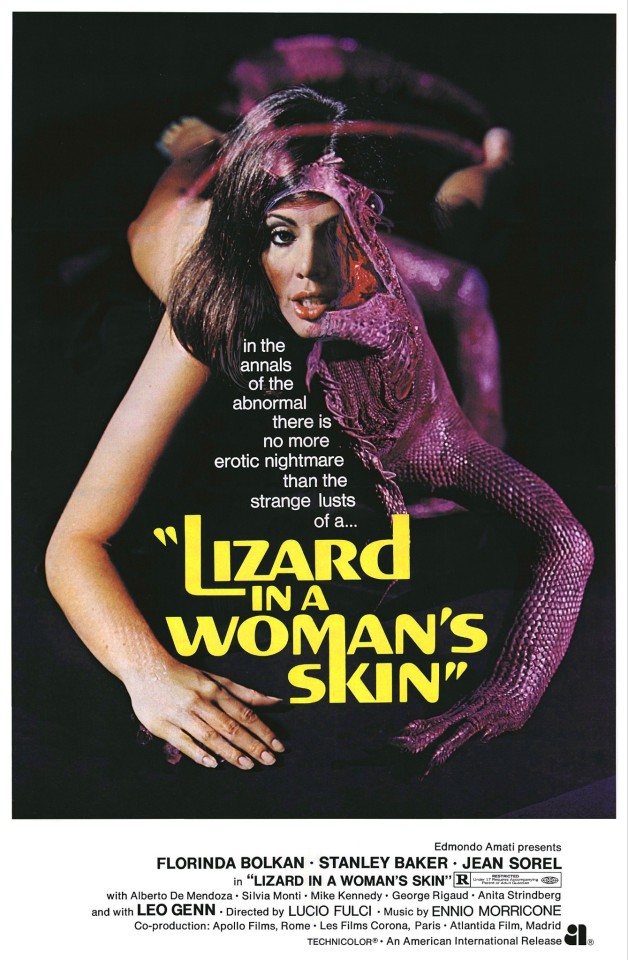
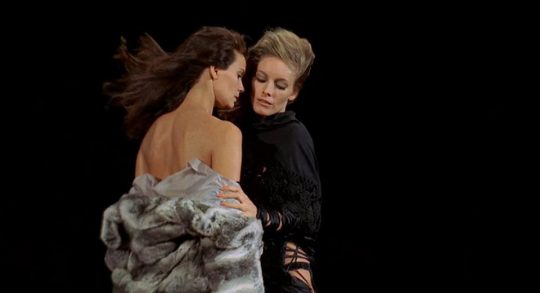
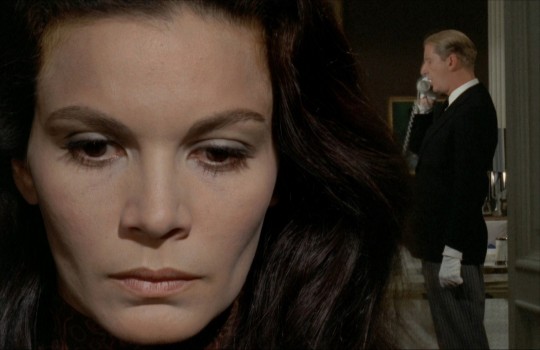
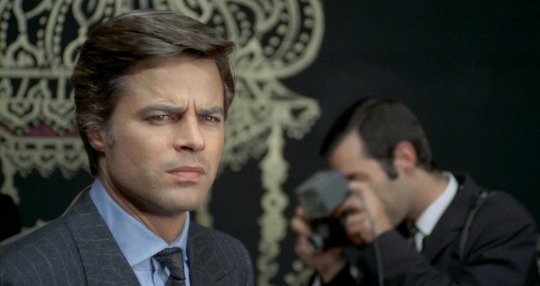
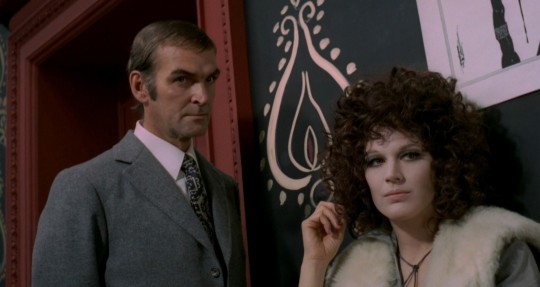
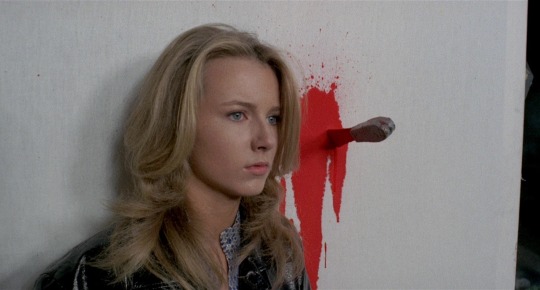
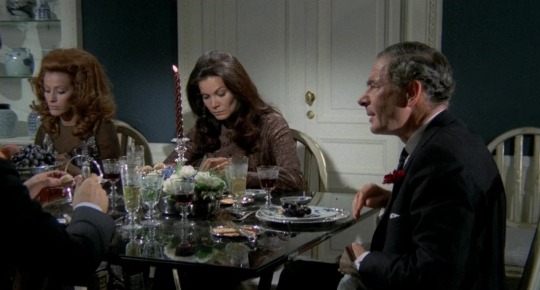
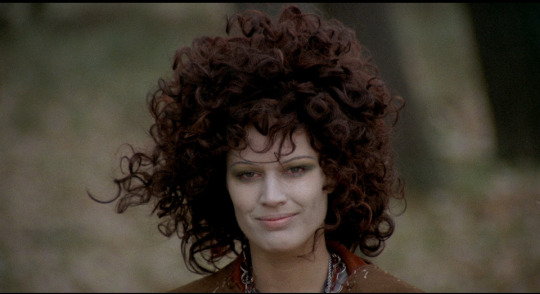
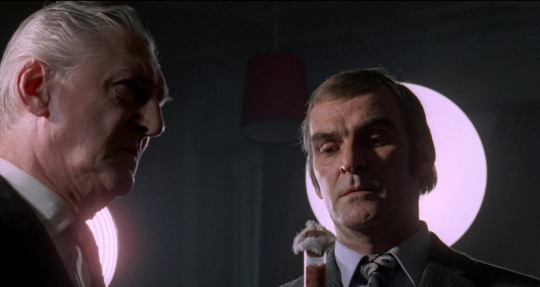
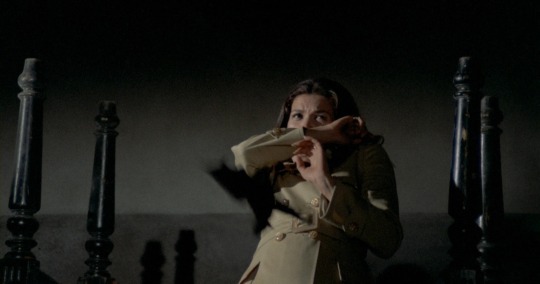
Una lucertola con la pelle di donna (A Lizard in a Woman's Skin, 1971)
"You dream of having an affair with this woman who lives next door. To you, that woman represents sin, moral degradation. The house next door is a symbol of vice. From what you've told me, Mrs. Durer is not exactly respectable."
"No... she certainly is not."
#una lucertola con la pelle di donna#a lizard in a woman's skin#lucio fulci#italian cinema#1971#roberto gianviti#josé luis martínez mollá#florinda bolkan#stanley baker#jean sorel#silvia monti#alberto de mendoza#penny brown#mike kennedy#ely galleani#george rigaud#leo genn#anita strindberg#basil dignam#ennio morricone#mesmerising. ymmv of course‚ and this does seem to be fairly divisive; I've read reviews by people who hated this or (even stranger to me)#found it to be poorly made. well not so‚ say i. Fulci in unusually restrained form‚ still stylish as all hell‚ but not allowing the visual#flourishes and artful winks at the audience to drown out the narrative. the plot itself is a twisty turny thing and almost in danger of#getting too involved in itself‚ but it all pulls together by the close. hard to see in the uk for many years because of a scene of animal#cruelty which ironically‚ for once in an Italian film‚ wasn't real but fx work; albeit fx work so convincing that it actually led to a cour#case and fx maestro Carlo Rambaldi having to demonstrate the effect in front of a jury to prevent Fulci potentially receiving a prison#sentence (or so the story goes). a longer waffling review is on my letterboxd but suffice to say that‚ for me personally‚ this was a hugely#satisfying watch after many years of anticipation. Bolkan is fascinating‚ mercurial; Strindberg (strangely uncredited) is understood only#from the pov of other characters; Baker is a wonderfully cold‚ dispassionate investigator of terrible crimes. and it all looks beautiful#plus it's one of a very few gialli set in the uk to actually bother going there to film! which means unexpected brit character actors!
21 notes
·
View notes
Text
I'm so heavily anti-advertising that all pitches sound goofy silly to me/I can never take them seriously, so I have no idea how I'll manage to to advertise my game even if I do finally finish it soon-ish lol...

#Especially how so much modern media advertising is like... getting people excited about random tropes and stuff like#''Do you love enemies to lovers? Do you love sad stories that make you do a heckin CRY? Do you love big stupid dumbo muffin cake#sinnamon roll babies who are too good for this world? Have you ever wanted to read a blah blach blah" whatever stuff and it's like#... i cannot type that... I couldnt do it.. I couldn't even think of how to do it ghbjhbjh#I am such a literal person... Like I love when an advertisement is just like 'This product works well. Look at it. Buy it if you want. Ok'#You know what makes me want to read a book or watch a show or play a game? Reading a detailed plot synopsis or the full wiki page#for it and then deciding 'yeah I wouldnt mind sitting through seeing the events I just read about happen in more detail' lol#OR aesthetics. since I do often watch things JUST for the set/costume design. Sometimes I will watch stuff literally#just because I saw a picture of a costume in it that looked really cool and I want to sketch costume looks whilst watching#But aside from appearance like... little bullet point break downs of things that are in a story just ... do not do anything to me at all.#And i just hate 'selling' things to begin with. I don't want to have to convince people to like something.. they should just... like it...#LOL.. like.. just be born liking it. just like it automatically please. Dont make me beg to you like a weird little freak. So many commerci#als seem weirdly desperate and manipulative. Like those Truck/Car commercials that will have like a freaking dog crying and#a war vet in a wheelchair with the american flag in the background and a family hugging around a christmas tree or some shint and its#just like oh my GODDD... shut UPP.. you could literally not be MORE blantant about just trying to prey on peoples emotions to build#some sort of fabricated positive association with your product/brand.. begone.. Or brands having their own twitters where they post#~~relatable content~~ as a means of shallow audience endearment GGGRR..... ANYWAY.. hhrgh...................#Maybe that's something I can ask playtesters I guess like.. I feel like I don't know my own audience very well because I am not#much of a media person?? ironically.. Like I do enjoy MAKING media. But I've never been in a fandom. I've never read fanfiction. I've never#spent much time in those spaces. I've just never really had the inclination and don't personally derive much joy out of stuff like that#(since I'm already so focused on my OWN world and projects its like.. hard for me to even find the time and mental energy to expend on#others). Even when I finish a movie or game and really like it.. I just kind of like...move on? and don't really dwell on it much? At most#I will get into the worldbuilding of a piece of media and read the wiki for a while or watch Lore info or critical analysis videos. But I#never really care for or attach to the characters or the plot itself very much. So I feel like.. the way my brain works. I'm just not as#good at approaching things from that angle? Kind of like how if you're a lifelong vegetarian whos never eaten meat - you might#struggle to write an ad for fancy brand of steaks bc you'd be like... idk what meat eaters are even looking for? whats the selling point??#Which I'm not saying that I wouldn't play my own game. i AM definitely the audience for it. But it's more like.. I would play it for my own#very niche specific reasons that I think are different from what MOST people might want to play it for. So I need to somehow#tap into the minds of the Majority who play things for Normal Reasons than pure lore collection or whatever lol.
9 notes
·
View notes
Text
everyone on earth probably has a hypothetical farming sim in their mind's eye that they daydream about on occasion because of the unfortunate situation that despite there being like a thousand farming games released every minute only like 4 of them are any good. and i think this is fun, i think its good to keep the imagination alive. if i made a farming sim i would bring back rival marriages from the old friends of mineral town. i want to steal someones wife.
#jk jk you dont steal anyones wife or husband. but it wasnt a popular feature because people felt like they were stealing someones spouse#plus the fact that characters married eachother after a certain amount of time made them unavailable for player marriage adding a timelimit#if the player wants to get married. but thats why i want it BACK i think its 1) hilarious and 2) interesting and makes the world feel alive#NOW part of the reason (outside of it being an unpopular feature to begin with) its not in like any modern games is probably because#devs don't know how to deal with non-gender-locked marriage candidates with this#i think its easy. everyone is bisexual. not just playersexual. textually bisexual#it'll be interesting if they always have a set pairup regardless of player gender but it could also be interesting if there was like#a little algorithm to give a couple non-player pairups as options. maybe make it random#or if a dev was tooooo ambitious they could add a matchmaking system that the player could be involved with if they wanted to play cupid LO#but that seems too much for a farming game. thats usually a whole other game in itself#but yeah i think its easy. its not like farming sim marriage candidates are all that deep characters to begin with#i think itd be fine if you had a couple randomized rival marriages...... i think itd be neat#my other farming sim daydream is NO fucking combat for the love of god FREE ME from combat#that is why i like story of seasons just a bit more than stardew#stardew has so much good farming mechanics but god i hate the mines. i think its so soso sososososososo boring#i also dont really like the turn based battles in atelier games and most atelierlikes either#(well i liked it in mana khemia but that was more turn based focused than alchemy focused)#i came here to farm. i came here to make potions. i came here to micromanage numbers. do not make me battle#but that is purely a personal preference thing LOL a lot of people really love farming game combat. i dont tho <3#MY DAYDREAM FARMING SIM HAS NO COMBAT... AND YES CUCKHOLDRY#(jk jk thats not what rival marriages are. but thats how people talk about them. which is fascinating)#(unfortunately it makes me laugh so thats why i keep making jokes about it. sowwy <3 )
13 notes
·
View notes
Text
I think the biggest thing about Sunless Skies that gives it a different feel than Fallen London (other than the obvious gameplay differences) is the position of your player in the universe. In Flondon, your character is important and singular. The storyline is oriented around mastery and influence: starting from the bottom and climbing to the top, gaining recognition and reach as you unravel the world's secrets. While social play is encouraged, there are few in-game characters comparable to the PC, and in many plotlines the idea of being the only or the first one to accomplish a certain thing is specifically emphasized. The story is about what path you take to Make Your Name.
In Sskies, that goal is not absent, but there's a sense of...fleetingness, that never quite leaves you. There are many others like you. You see their entries in the cache logs, they are mentioned in the ports and pubs, you find their frozen bodies littering the open void like stones. It is the very first thing you know when you start: you are a Captain filling the shoes of a predecessor, and in all likelihood simply keeping them warm for the next to come after you, and the next. Your time is limited. Your significance to the wild, vast, ancient skies is negligible. The drive in the story comes from this: Your space in this universe is small and hard fought. Make it count.
#fallen london#sunless skies#i would say I like the sskies version better but honestly I think they both work great for their own applications#both in setting and for the way the games are played#I've seen the flondon fame gathering thing criticized occasionally but honestly I've always read it as like#a tongue in cheek parody on rich Victorian ego#as well as being inherently flexible,because of how players tend to treat the stories#for some it will be about doing Everything,but for most it's about getting a wide choice of what to focus on and how to specialize#in a character development sense#and also the story really is about How you get there and who you are while doing so#what with the quirks and everything#that's a mechanic that's notably absent from sskies#probably because your character is meant to be less permanent and less noticeable as an individual#most of the in-game character defining you do relates to building out their past with facets#because their present and future are so tentative and so embedded in the bigger picture#I really really like it. it's almost like the world is more the character#but ALSO the feel of like. the game does not treat loss lightly. there are Implications and narrative even for the loss of unnamed crew#it all also plays in so so nicely to the switch from flondon's tightly controlled sheltered chaos#(enclosed in a cave,tightly governed by the Bazaar,the sense of a new world building itself on top of older ones)#vs the Reach being so open and fraught and wild and legitimately teetering on the brink in every way#the way the characters are treated fits so so well into the political landscapes too#like. sskies is wartime.#the messaging that you the individual is fleeting and disposable and that it's what you donate your effort to that matters is Constant#so it works really really well there#oh now I want to go on again about how well the flondon way works in a meta sense for gameplay and community building#because it's emphasizing individuality while also paired so heavily with social actions and -#ouuuuuuuuuuuuuuuuuuu#hey gang have i mentioned. I like fallen london a lot. hey have i mentioned yet that I like flondon A Lot#voidrambles#<- It Sure Does
86 notes
·
View notes
Text
I'm probably overthinking Qimir's backstory because this far in I want it to be somewhat shocking/worth the wait, BUT... I believe the "tragedy" of it should come from simplicity
#because tbh the specifics dont *really* matter#what matters is that he's making the active choice to tell osha#in many ways that concludes a large chunk of his arc#he's all in with her#and being secondary to her#it's osha's own choices that are driving the plot#but i do just realllyyyy love the idea of fulling immersing in his backstory#to have the “shock” also come from when you're pulled out of it#that's just what makes it hard because it's essentially a story within itself lol#like new setting characters conflict and everything#director's commentary ✨️#flythepost
9 notes
·
View notes
Text
rereading DWJ's Dalemark Quartet and these books are always more brutal than I remember
#a butterfly obsesses#everything that happens in Cart and Cwidder? and Moril is like eleven???#people ask why kids are unsupervised in young adult stories#DWJ sets up good reasons and in so many cases it's tragic#Drown Ammet is the most painful of the series. to me.#I'm most of the way through that one right now#I have a lot of thoughts about Hildy as a character#how DWJ plays out the 'poor little rich girl' tropes#even though Hildy hated most aspects of your life as nobility she still thinks she's inherently better than common people#she's not a bad person but she's not a nice person and while her difficult relationships change somewhat they don't become good and perfect#she grows but growth doesn't mean she suddenly becomes a different person and lose all her faults#I don't like her but I like an antagonistic character that isn't there just to be reformed#because in real life you're going to meet people you don't like and don't mesh with and they're always going to be like that#the book itself sums it up with her basically saying she trusts Mitt but doesn't like him. backgrounds and point of view just too different#anyway the casual but awing interactions with gods is great#I like how the books are set in three different eras and every era views magic and stuff as something from long ago in old stories#but magic is alive and well the whole time
2 notes
·
View notes
Text
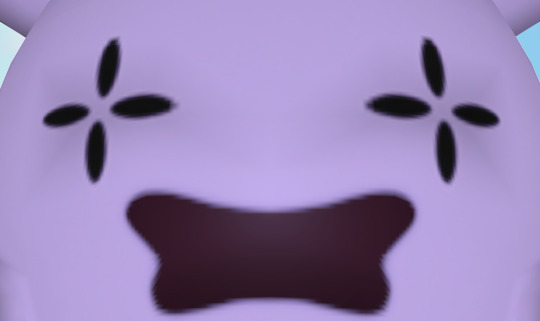
#i SEEM to remember this pokémon itself and some characters in the anime pronouncing their name like “wees-mur” as opposed to “wizmur#.” and i don't know where i remember that from#although i'm pretty sure it was in anipoké‚ i don't. like. ever watch anipoké so i don't know where i would've heard it from#BUT‚ in pokédex 3d pro or whatever the fuck on the 3ds‚ which is what i use to settle all pokémon name pronunciation disputes#i take that as gospel. anything the announcer guy in that game says is the truth to me even if i don't like it. but the thing is#for whismur. he says “wizzmur” just like i ORIGINALLY thought when i read the name. but i seem to remember the anime saying “wees-mur”#Wheece Mur. that kind of thing. i don't?? get it. i'll have to look it up again or something but that's my story about whismur's name#whismur#peperoany and wheace (mur)#throw some loodread on that bad buoy#actually before i set this into the queue lemme look it up. whismur saying its own name in the anime#okay yeah i can't find it i have no idea where i would've seen this. but you all believe me#i could never say anything wrong and i would never lie to you in my tags
52 notes
·
View notes
Text
This month's bonus book is super long and it seems the reason for that is because the author spends like a paragraph doing world-building or unnecessarily over-explaining reactions between each line of dialogue -_-
#i'm only 3% through so far so it may improve once we've done enough of the world-building#but if not then it's only a matter of time before i dnf it because it's already grating on me#it's like. i don't care about this side character's relationship with her parents please just get on with the story#also the author's ripped off norse mythology but not in like. a good or clever way.#she's literally just changed the name of things very slightly or used the names of things for entirely different concepts#and the main character is apparently from a 'small village called nidaros'#nidaros is the old name for trondheim y'all. she's from fucking trondheim. which isn't a small village and wasn't when it was nidaros eithe#but i'm pretty sure the city itself is supposed to be entirely fictional#it's certainly not set in medieval norway bc they have cell phones and stuff#anyway we'll see how long it keeps up and how much it tries my patience#but if it doesn't improve soon it's going in the bin (metaphorically speaking given it's an ebook)#bc it's a hefty-ass book and i'm not investing near on 20 hours into something i don't enjoy
9 notes
·
View notes
Text
*through gritted teeth* there is no shame in tagging a for fun fic with the fandom tag of multiple continuities. Mixing continuities can't hurt me
#did u know there's less than 90 fics for the marvel tf continuity?#which is understandable bc it's batshit and hard as fuck to work with#BUT it introduces so many interesting concepts it's worth checking out#so I frequently use some of these concepts in my work but change it over to be in a cartoon g1 setting so I can give it room to breathe#Anything I write with the Combaticons Prowl or Blaster almost always have inspiration from marvel in them because I really like the setup#for their characters there#with the combaticons it tends to be more specifically Blast Off in refrence to the comic where#Blaster locks him in alt and uses him for children's entertainment against his will#and I have a lot of thoughts on that!!!!! how it would traumatize him and change dynamics with autobots and w his gestalt n stuff#Rn I'm just struggling with a tagging a fic that openly uses Prowl's introduction in marvel bc I think it's interesting as fuck but the#story itself is in the cartoon generation one which heavily contradicts marvel#whereas most other times I use marvel I can work it in somewhere into the cartoon continuity but here I can't#and I certainly don't want to erase elements from either continuity#oh well. I just have to get over my annoyance at tagging#and then hope that ppl don't avoid it too heavily because of the tagging!! even tho it's no different from a fic tagged as all media types#in a personal continuity
3 notes
·
View notes
Text
youtube
this is not the exact one I watched but I saw one of these "dish scape" things at someone's house who actually has TV (like they pay for dish/cable instead of just watching stuff online) and I think they're meant to be relaxing atmospheric stuff that you mostly ignore, but I sat there for 35 minutes watching absolutely engrossed.. further proof that I genuinely think my brain is incapable of experiencing boredom lol..
#IT'S BECAUSE there's so many little details that like you can spend minutes just scanning every corner of the image and taking it all in and#you keep finding new things! like 'oh I didn't know that blade of grass moved!' or 'I didnt see that bucket before!'. And then on top of#so many details - some things genuinely do change. The one I saw was a Beach house scene and sometimes a bird would fly by or ONE TIME kite#came out of nowhere. a sandcastle built and unbuilt itself. there's a firepit and it comes on when the sky changes from day to afternoon!!#this is like watching a sports game to me. I need weird detail oriented friends who will sit for 20 minutes staring at a barely moving pict#ure & cheer and clap with me when a seagull flies across the screen ghgj.. THERE HE IS!!!! etc!! and there's just so much to think about!!#Like how the images are layered or animated and the choices that were made (like I think the sunrise and sunset sky background images for t#e beachouse are just the same picture flipped and recolored) and trying to predict what's going to happen next (will the lights in the hous#turn off for night time? will another bird show up??) etc! I even got up at one point to walk close to the screen and get a better view of#hese paintings that were visible through the beachhouse windows. and then thinking about building a similar home in the sims! OR ALSO THIS#WOULD BE SUCH A COOL medium I think to tell a story! Like you upload a video to youtube that is framed just as a completely average moving#screensaver ambiance type of thing. It's like 7 hours long and mostly loops the same still image. However. over time at certain points you#can see some thing happen like watching characters interact through the windows. animals or people walk across the screen. certain elements#in the environment morph or change. etc. In such a way that an entire like plot is conveyed. maybe like fantasy mystery sort of thing. I WI#SH I could do this style of art / had friends who could or had money to pay somebody to. I would LOVE to collaborate on a weird surreal#It's Just Your Average Slowly Looping Moving Screensaver Video I Promise' type story.. jjhhgHH.. Or even just making one of these set in so#me of my fantasy world environments. not as a secret thing with easter eggs that tell a story but just literally an image like this tha#moves over time and etc. HHRRGRGHhhhhGG.. ANYWay!! I had to actually turn it off not because I was bored but because it was distracting me#. which is funny since again. I think for most people it's meant to be a 'just leave it on in the background' type of thing that's bland an#neutral . But it was just making me think too much ghjgh.. This is why I can't go to amusement parks or nightclubs bars or concerts like..#a moving screensaver image is too overstimulating to my brain. Could you imagine me going to an environment just full of sensory informatio#like loud noises poeple talking flashing lights etc. etc. ? hghghb... Visiting a grocery store at a slightly busy hour is like my upper lim#it... Anyway.. everything is just so interesting to me. Even if I was locked in a room alone I would have plenty to think about & amu#se myself. I am also a hater definitely like I'm a very analytical person who is critical of society and systems & everything that exists#and even generally am just very opionated and have distinct preferences - so just because everything is INTERESTING does not mean I LIKE or#enjoy everything or never get tired of/annoyed by situations or ideas or etc. But it's more just like.. I literally dont think I could ever#be bored because of the way my brain works and also I approach life with elements of childlike whimsy and constant obsessive curiosity and#attention to detail. so as much as I am an analytical bore I also love everything and the world is fascinating at all times. lol.. duality#of man. if you get it then you get it. ANYWAY.. wanted to ramble abt it. I don't like the above video as much as the one I actually saw but#I couldn't find the beach one online.. BUt.. aaHH! best viewed whilst talking to yourself narrating/cheering! ALSO I want to make one!!!
8 notes
·
View notes